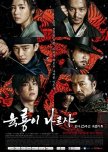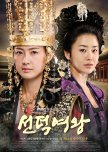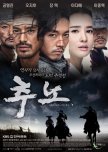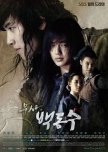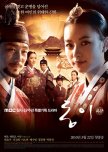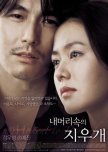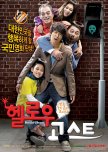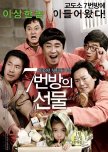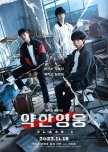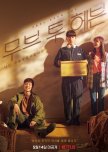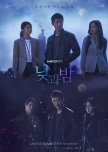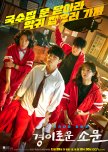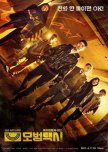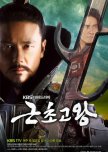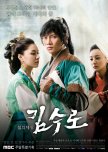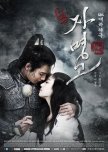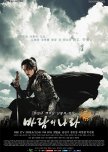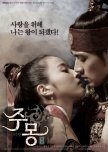 Jung Da Bin is joining Shin Hye Sun and Lee Joon Hyuk in a new Netflix original K-drama
Jung Da Bin is joining Shin Hye Sun and Lee Joon Hyuk in a new Netflix original K-drama - Italiano
- 中文(简体)
- Español
- Português (Brasil)
- Titolo Originale: 뿌리깊은 나무
- Conosciuto Anche Come: A Tree with Deep Roots , Bburigipeun Namu , Deep Rooted Tree , Deep-Rooted Tree
- Regista: Jang Tae Yoo, Shin Kyung Soo, Kim Seung Ho
- Sceneggiatore: Kim Young Hyun, Park Sang Yeon
- Generi: Storico, Mistero, Politico
Dove Guardare Tree With Deep Roots
Cast & Ringraziamenti
- Han Seok Kyu Ruolo Principale
- Jang Hyuk Ruolo Principale
- Shin Se Kyung Ruolo Principale
- Jo Jin WoongMu HyeolRuolo di Supporto
- Park Hyuk KwonJung In JiRuolo di Supporto
- Hyun WooSeong Sam MunRuolo di Supporto
Recensioni

Great story, perfect acting
Così avvincente ed emozionante da non riuscire a vedere alcune puntate tutte di seguito a causa della grande tensione e dei continui colpi di scena. Il migliore drama storico che abbia mai visto. Storia della corea antica e fiction intrecciate con grandissima maestria dagli sceneggiatori. L'avevo scelto perché non posso campare senza la mia iniezione quotidiana di Jang Hyuk ma l'insieme supera e trascende i miei problemi di dipendenza; in questo caso, addirittura il pur stupendo e bravissimo JH non è che un tassello di un racconto corale emotivamente superiore. Tutti molto, ma molto, bravi compreso il poliedrico cattivo ma, sopra sopra tutti, il magnifico attore che impersona re Lee(Yi) Do. Di pregio la parte cappa e spada. Mi ha ricordato un po' i celebri wuxia dei primi anni 2000 (e. g. House of flying daggers / Zang Yimou ): grandi duelli acrobatici, ma poco o niente macelleria. Attenzione. Per i patiti degli sguardi languidi e delle mani che si sfiorano: romanticismo vicino a zero. Imperdibile per chi ama il genere. Non è vero che occorre vedere prima il complicatissimo (bello,ma meno avvincente) Six flying dragons. Basta qualche pagina di wikipedia e, se volete, My country (Netflix), storia del padre e del nonno di Lee Do, con un bellissimo, crudele e dolente Jang Hyuk (e dai!!!!) nella parte del principe Lee (Yi) Bang-won, poi re Taejong, padre di Lee Do. Di molto interesse anche il tema centrale: l'invenzione dell'alfabeto coreano. Non tanto o non solo in sé o per approfondimento sulla storia coreana, ma per il modo diretto e articolato di farci capire l'importanza dell'accesso alla conoscenza tramite la scrittura. Un'arma fenomenale a disposizione di tutti (non solo dei coreani) di cui sottovalutiamo la potenza e la libertà d'uso concessa a tutti, indistintamente.Ho trovato il drama riassunto benissimo, puntata per puntata, su dramabeans, che consiglio, soprattutto per comprendere al meglio gli scontri ideologici.
La colonna sonora non mi ha impressionato. Non riguardo quasi mai. Non 24 puntate poi.
Questa recensione ti è stata utile?

A vividly told emotional story about the creation of Hangul and its impact. Absorbing. Gripping.
Of course, this historical drama is (as many others) full of intrigues, power struggles and revenge. But King Sejong, the 4th Joseon king, who is the historical subject of this KDrama, was indeed a bright shining star in the Joseon sky. So is this KDrama.King Sejong created the Korean alphabet. Not just him alone. But this great achievement goes back to his driving force and his vision of a mature people. The story impressively tells of the bumpy road to Hangul. It also tells of how important it is as an identity-creating medium for self-confident citizens. Previously, Hanja - the canon of sheer countless characters of Chinese origin - was the country's binding writing. Not only that, but a whole range of Korean words are loanwords of Chinese origin - to this day. At the same time, this reflects the asymmetrical balance of power between the Korean dynasties and the Chinese dynasties. The use of the Han signs not only symbolizes the hierarchy among the peoples, but also within one's own people. Scribes and scholars were needed, who had the muse and time to learn these characters (more than 100,000 in total). Thus, they had the authority to interpret. It was hardly possible for ordinary people to learn. A scripture that connotes words and meanings in characters is based on a completely different concept than a scripture composed of a compact alphabet. Based on the phonetics of the Korean language, King Sejong developed an alphabet finally consisting of 14 symbols for consonants and 10 for vowels. The writing system to apply those in a way to form words and sentences can be learned comparatively quickly, even by ordinary people. What a progressive concept at the time! What a threat to the elite of scholars and noblemen!
The title "Deep Rooted Tree" refers to verses from the 'Songs of the Dragons That Fly to the Sky' - the Yongbieocheonga. This contemporary document about the Joseon Dynasty and its legacy was the first book that was ALSO written in the new Hangul writing system.
"Deep Rooted Tree" is (among many other truly exciting dramatic events throughout the story) about the impact of scripture for the people of Joseon - a story vividly told in an absorbing manner. A truly fantastic presentation. With gripping protagonists. Multidimensional. With high emotional impact.
The dramaturgical setting introduces the king (from the perspective of the male protagonist) as the bad guy. But the 24 episodes (analogous to the alphabet?) provide an impressive insight into the fascinating life´s work of that great king - embedded in the excitingly increasing momentum of the vendetta of a boy from humble origins who grows up to become an outstanding warrior and finally ends up as royal guard.
Questa recensione ti è stata utile?

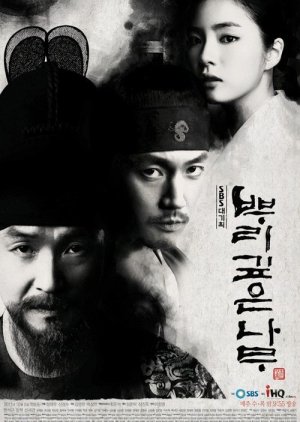










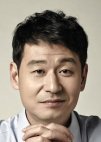

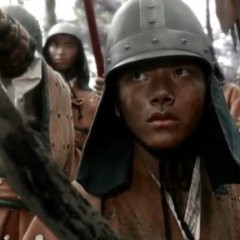
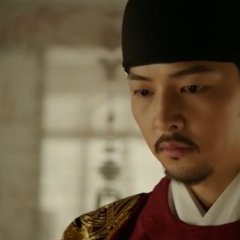
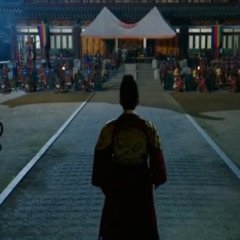



 1
1